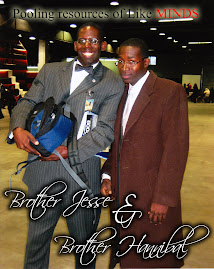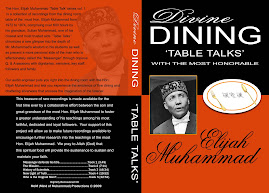Black power, white supremacists, abortion foes make list
By Audrey Hudson (Contact) | Tuesday, May 5, 2009
WASHINGTON — The same Homeland Security Department office that categorized veterans as potential terrorists issued an earlier report that defined dozens of "extremists" ranging from black power activists to abortion foes. The report was nixed within hours and recalled from state and local law enforcement officials.
Whites and blacks, Christians and Jews, Cubans and Mexicans, along with tax-hating Americans were among several political leanings listed in the "Domestic Extremism Lexicon" that came out of the Office of Intelligence and Analysis (I&A) in late March.
The lexicon lists definitions for key terms and phrases used by Homeland Security analysts "that addresses the nature and scope of the threat that domestic, non-Islamic extremism poses to the United States," the report said.
Click here to download a PDF of "Domestic Extremism Lexicon"
Black separatism was defined as a movement that they said advocates the establishment of a separate nation within the U.S., and its members "advocate or engage in criminal activity and plot acts of violence directed toward local law enforcement" to advance their goals. Black power is a "term used by black separatists to describe their pride in, and the perceived superiority of the black race," the report said.
Under the listing "antiabortion extremism," the lexicon cites a movement that "advocates violence against providers of abortion-related services." It notes that some people in the movement "cite various racist and anti-Semitic beliefs to justify their criminal activities."
"The lexicon was not an authorized I&A product, and it was recalled as soon as management discovered it had been released without authorization," said Amy Kudwa, Homeland Security spokeswoman.
"This product is not, nor was it ever, in operational use," Ms. Kudwa said.
Rep. Peter T. King, New York Republican and ranking member of the House Homeland Security Committee, said the report "causes further concern that Congress needs to get to the bottom of exactly how DHS determines what intelligence products to distribute to law enforcement officials around the country."
Continue reading 12Next
WASHINGTON — "Although we have evidence that some of the groups described in this and other DHS intelligence products are an active terror threat to our nation, I would be interested in knowing why this lexicon mentioning left-wing extremist groups was deemed inappropriate by DHS and recalled, yet a similar report focusing on veterans, antiabortion activists and anti-illegal immigration activists was fit for distribution and sent out by DHS to law enforcement agencies across the country," Mr. King said.
The 11-page lexicon document lists terms from A through W, beginning with "aboveground," which is defined as extremist groups or people who "operate overtly and portray themselves as law-abiding," and ending with "white supremacist movement." The listing notes six categories of white supremacists: Neo-Nazi, Ku Klux Klan, Christian identity, racist skinhead, Nordic mysticism and Aryan prison gangs.
A "left-wing extremist" is described as someone who opposes war or is dedicated to environmental and animal rights causes, while a "right-wing extremist" is someone who is against abortion or for border enforcement.
The same "right-wing" definition appeared in a report last month that prompted an outcry in the veterans community for also suggesting that veterans of the Iraq and Afghanistan wars were targets for extremist groups to recruit for attacks against the U.S.
That report was not recalled; however, the department said it has instituted changes to more carefully review these reports before they are sent to local law enforcement agencies.
"Since this happened prior to our last experience, our new internal protocols were obviously not in place," Ms. Kudwa said.
Roger Mackin, the head of the I&A responsible for the report that suggested veterans were being recruited to commit terrorist acts in the U.S., was replaced late last month. Ms. Kudwa said then that the personnel moves were categorically not related to the veterans-related story reported by The Washington Times in mid-April.
She also said Mr. Mackin would move outside Homeland Security, to the cybersecurity section at the Office of the Director of National Intelligence. The new detail for Mr. Mackin had been planned for several weeks and predated the April 7 report, Ms. Kudwa said at the time.
The latest report to become public, the lexicon on domestic extremism, stated that people involved with anti-immigration extremism "may have been known to advocate or engage in criminal activity and plot acts of violence and terrorism to advance their extremist goals."
"They are highly critical of the U.S. government's response to illegal immigration and oppose government programs that are designed to extend 'rights' to illegal aliens, such as issuing driver's licenses or national identification cards and providing in-state tuition, medical benefits, or public education."
"Cuban independence extremism" is defined as those who "do not recognize the legitimacy of the Communist Cuban Government and who attempt to subvert it through acts of violence, mainly within the U.S."
Mexican separatism defines those would advocate an armed struggle to take back Arizona, California, New Mexico and Texas, the report stated.
Environmental extremism is described as those "who use violence to end what they perceive as the degradation of the natural environment by humans."
And, the "tax-resistance movement" is described as "groups or individuals who vehemently believe taxes violate their constitutional rights."
The criteria in the listings are a willingness to advocate or engage in criminal activity or plot acts of terrorism.
The report lists traditional extremist groups, such as racist skinheads or lone terrorists who might plot against the U.S., as well as some obscure groups. Racial Nordic mysticism is listed as an ideology adopted by many white supremacist prison gangs "who embrace a Norse mythological religion, such as Odinism or Asatru."
Copyright 2009 The Washington Times, LLC
http://washingtontimes.com/news/2009/may/05/homeland-pulled-back-extremism-dictionary/?page=2
Information Researched By: Sister Anonymous









































No comments:
Post a Comment